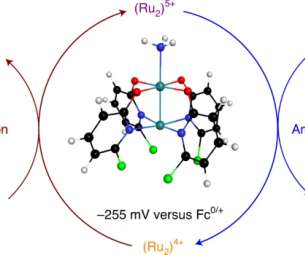UW Madison chemists discover new way to harness energy from ammonia
Green Car Congress
NOVEMBER 12, 2021
A research team at the University of Wisconsin–Madison has identified a new way to convert ammonia to nitrogen gas through a process that could be a step toward ammonia replacing carbon-based fuels. Ammonia has been burned as a fuel source for many years. However, burning ammonia releases toxic nitrogen oxide gases.





























Let's personalize your content